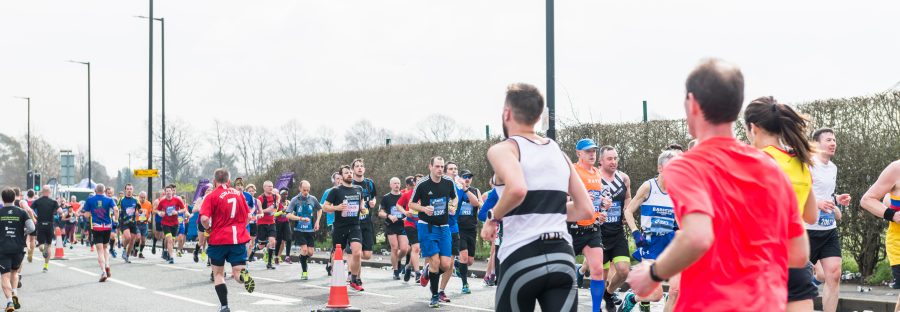How Ancoats Run Club is encouraging better health in more ways than one
Ancoats Run Club began in 2020 amid the lockdown during the pandemic. Deborah Todd told Confidentials she was getting bored of running on her own during the lockdown. She proceeded to then post into her building’s Facebook group suggesting a social run. The next day a few people turned up and the next day, even more. The club continued to grow and now has over 1,700 followers on Instagram and runs every day of the week.
The group now hosts an array of runs, as well as social events and other activites for people to meet others.
How can running improve your health and well-being?
There is an abundance of research exploring the positive impacts running can have on a person’s health, both mental and physical. The physical health benefits of running on your health can help improve your cardiovascular fitness, keep you in a healthy shape, and prevent life-threatening diseases like heart disease.
The mental health impacts of running are something which is highly prevalent, due to the release of endorphins causing an increase in mood and happiness, also known as runner’s high. Running also reduces the symptoms of those who suffer from anxiety and depression, due to the activity being a stress relief.
For example, Runner’s World Magazine found that ‘aerobic exercise three times a week at a moderate intensity over nine weeks can help to treat depression’ and for many, running and excercises alike are a way to improve thier mental health.
The Ancoats Run Club’s Impact
Luke Wilkinson, 28, an active member of Ancoats Run Club tells NQ about the impact being part of the club has on his well-being. He said:
“I find running is great for my mental health as it gives me something to focus on. One foot in front of the other. It’s a type of mindfulness, taking in things around me and being grateful for the fantastic world we live in. Even if Manchester is a bit rainy!
“Being part of a running club helps me with something I struggle with too. Structure and consistency, as the runs are at set times and there are varying distances too.
“It’s something that gives me a purpose and allows me to give back through others. Giving a fellow runner a smile, a fist bump, or asking how they are.
“I often run races in a ‘Mr Happy’ vest, and this creates a lot of positive energy from others to me. I try to share this energy around as much as I can!”
Tackling loneliness and social isolation through running
For many, loneliness and isolation can impact an individual’s mental health and increase the likelihood of depression and anxiety.
For example, a new analysis of Official National Statistics data from the Campaign to End Loneliness found that over 3.3 million people living in Britain were ‘chronically lonely’ (or felt lonely all of the time) and around one million younger people (aged 16-29) suffered from feelings of loneliness and isolation regularly.
However, it has been found that running groups can facilitate socialisation and create a sense of community amongst their runners.
Running activities that involve groups and have a social aspect have been shown to have more favourable outcomes in the long term, allowing people to socialise and tackle feelings of isolation through meeting others, but also just being outside with other people has proven to improve health and well-being.
‘Feeling a part of the family’
Luke shares his experiences with feeling socially anxious and how the club brought him out of his shell. He said:
“I’ve never had the courage to actually join a running club before I joined Ancoats Run Club. I struggle with social anxiety and going into a group of people can often create an overwhelming anxious feeling.
“Even having spent a lot of time with runners in races in the past, I still felt this prior to joining Ancoats Run Club.
“Initially I didn’t speak to others on runs but gradually I felt like I was learning people’s faces and learning names. Then one day, the run leader referred to me by name and this was a real catalyst for me. Going from the feeling of one runner who runs with others, to feeling part of a family.
“To anyone who might be thinking of joining a running club, I would say the biggest hurdle is taking the first step. I think most people will have a similar anxiety to how you might be feeling.
“After the first time you’ll know the craic, and when you next go it will be easier and you won’t look back.”
The group runs take place every day, both morning and evening and begin at the entrance of the Royal Mill Bridge in Ancoats.


